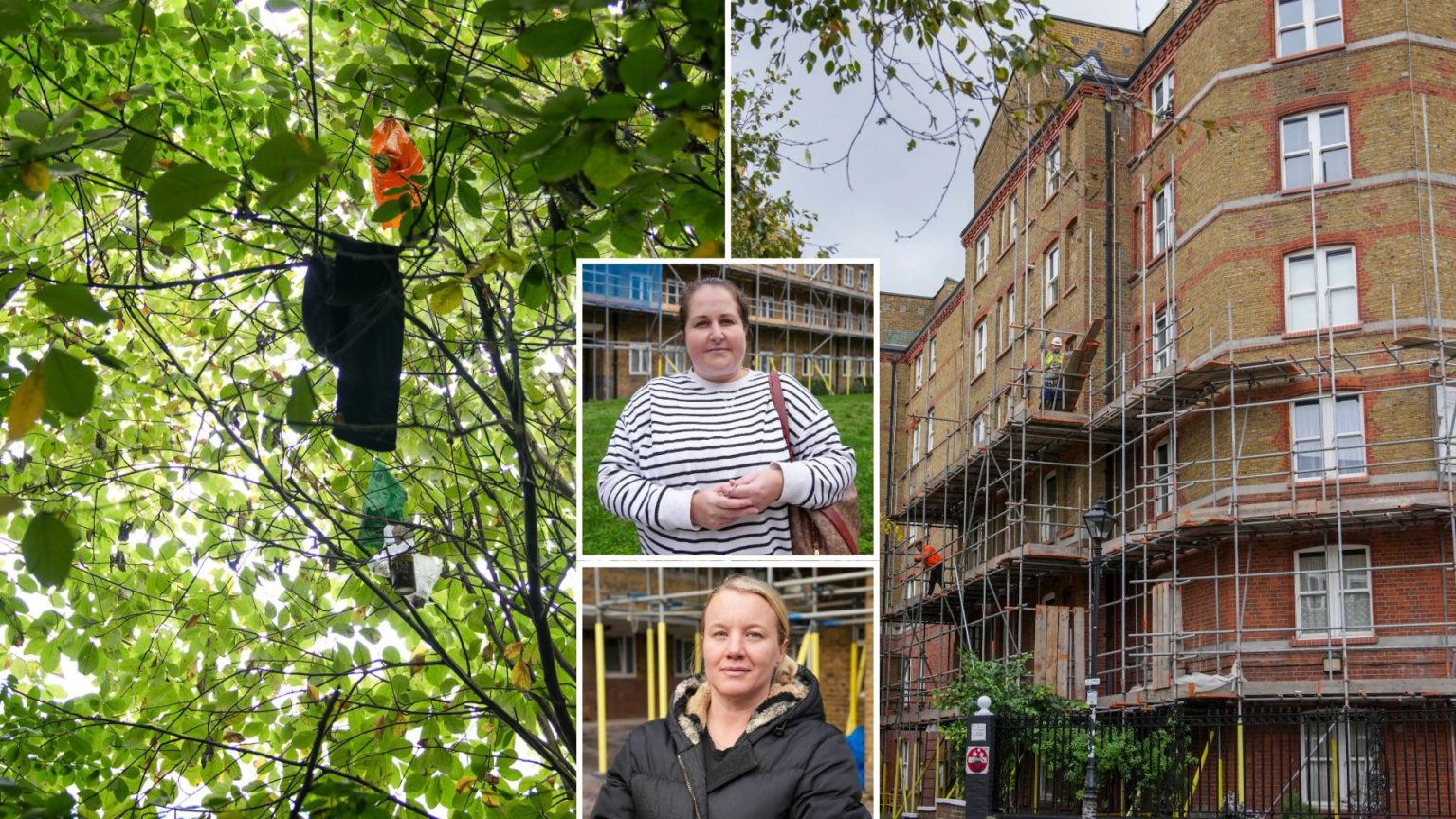The Nags Head estate in Tower Hamlets, London, has become a living nightmare for many of its residents due to the persistent antisocial behavior of some individuals, many of whom reside in the nearby Look Ahead hostel. Residents describe a climate of fear and intimidation, with drug use, discarded needles, and human waste becoming commonplace occurrences in the estate’s public spaces. Parents fear for their children’s safety, refusing to let them play outside due to the presence of aggressive dogs and drug-related activities. Stolen packages, verbal abuse, and even racially charged letters left on doors are just some of the incidents residents have reported. The pervasiveness of these issues has left many residents feeling unsafe and trapped in their own homes, with some expressing a desire to move if they had the means.
The source of much of the antisocial behavior appears to be the Look Ahead hostel, which houses individuals with histories of rough sleeping and high support needs, particularly related to drug misuse. Residents report witnessing drug deals, public drug use, and the frequent presence of discarded needles. The hostel residents also contribute to the unsanitary conditions, with reports of human feces in public areas and discarded rubbish and clothing hanging from trees. While some residents acknowledge the vulnerability of the hostel residents and the need for support services, their patience is wearing thin as they bear the brunt of the negative consequences of the hostel’s presence in their community.
The residents feel abandoned by Peabody, the housing association that owns both the Nags Head estate and the Look Ahead hostel. They have requested security measures such as gates to control access to the estate, but their pleas have been ignored, with Peabody citing “right of way” concerns. This lack of response fuels residents’ frustration and feelings of helplessness. They see a stark contrast between Peabody’s commitment to the hostel residents and their seeming disregard for the well-being and safety of the estate’s tenants. The residents believe Peabody has a duty of care to both groups and should take more proactive steps to address the ongoing issues.
While the residents express frustration and anger towards their antisocial neighbors, some also recognize the underlying issues of vulnerability and addiction. They acknowledge the need for increased support services and emphasize that these individuals require help rather than condemnation. Millie Buck, a former mental health care worker at the Look Ahead shelter, highlights the need for increased support and reminders of their role in society. She stresses the importance of understanding that these individuals are struggling with addiction and often act selfishly as a result. This nuanced perspective adds complexity to the situation, underscoring the need for comprehensive solutions that address both the residents’ safety concerns and the hostel residents’ needs.
Look Ahead, the charity that runs the hostel, maintains its commitment to supporting its residents and promoting good neighborly relations. They emphasize their collaborative efforts with local authorities, healthcare providers, and community partners to address residents’ needs and any reported antisocial behavior. They highlight their focus on helping residents move away from the devastating impact of rough sleeping and acknowledge the complex support needs of their residents, including histories of trauma, mental and physical health issues, and substance abuse problems. Look Ahead also underscores the funding challenges faced by the social care sector, advocating for increased and sustainable funding to support their work with vulnerable individuals.
The situation at the Nags Head estate illustrates the complex challenges associated with providing housing and support for vulnerable populations while also maintaining a safe and livable environment for all community members. It highlights the need for collaboration between housing associations, support services, local authorities, and residents to find effective and sustainable solutions. Addressing the root causes of antisocial behavior, such as addiction and mental health issues, while also ensuring the safety and well-being of all residents, requires a multi-faceted approach and ongoing dialogue between all stakeholders. The voices of the Nags Head estate residents underscore the urgent need for action to address this complex and challenging situation.




